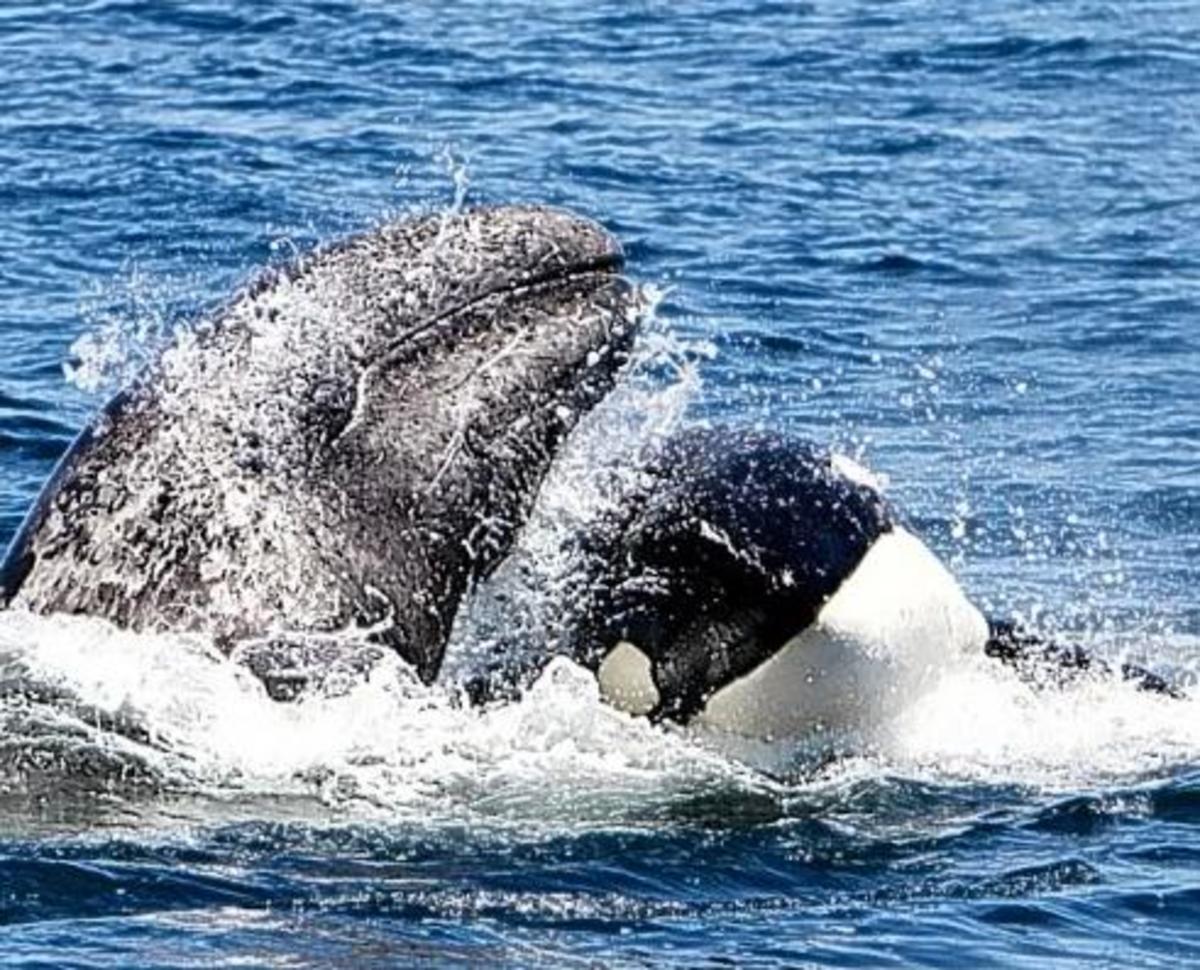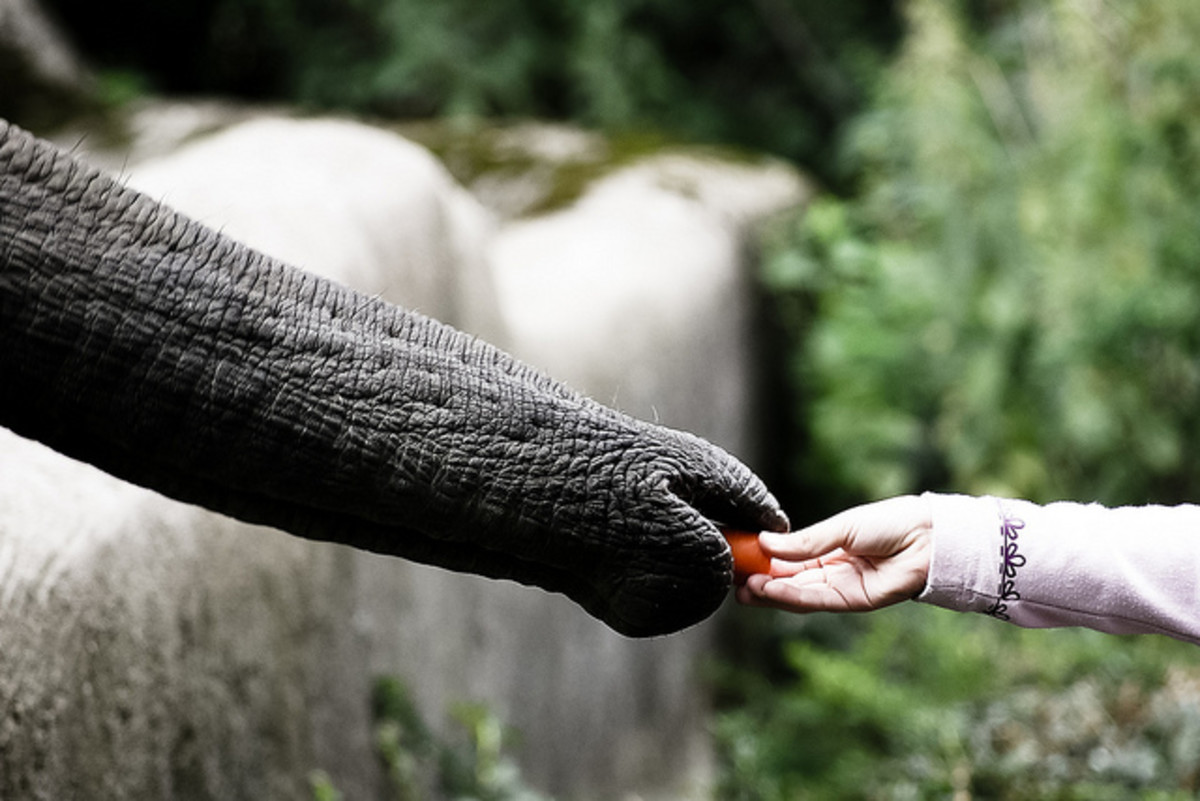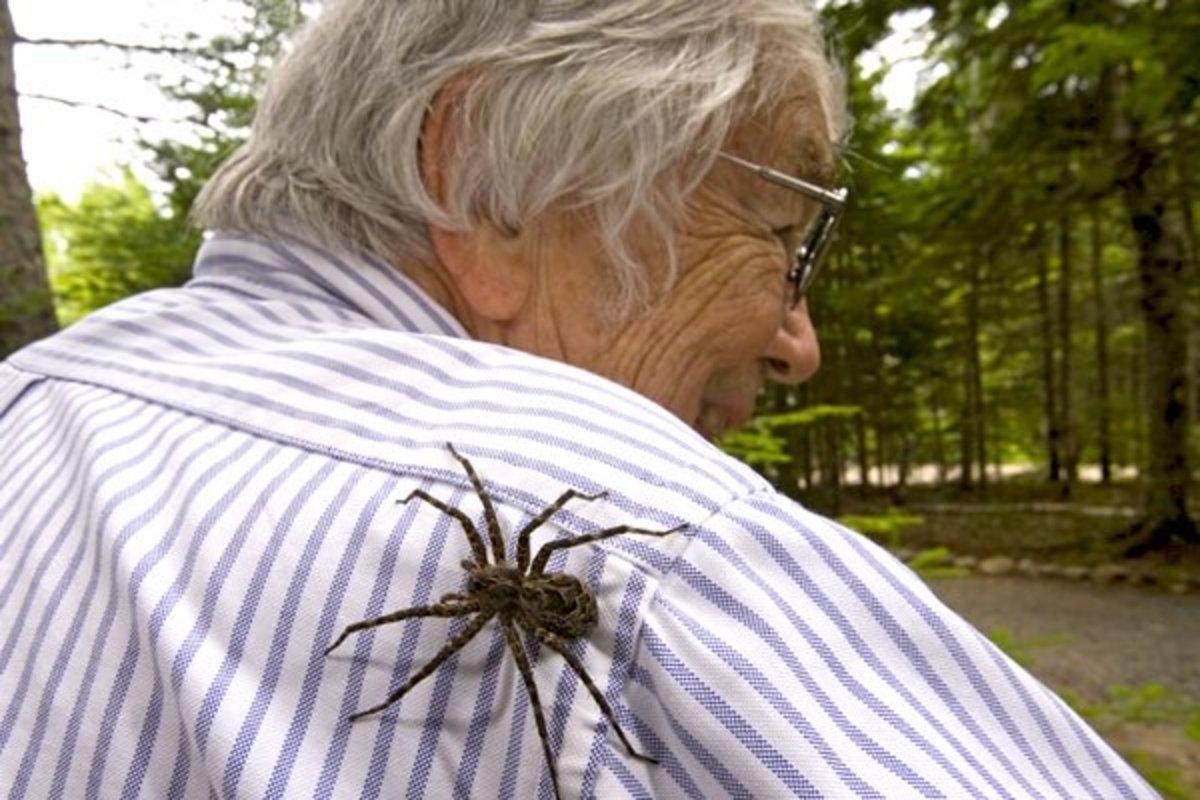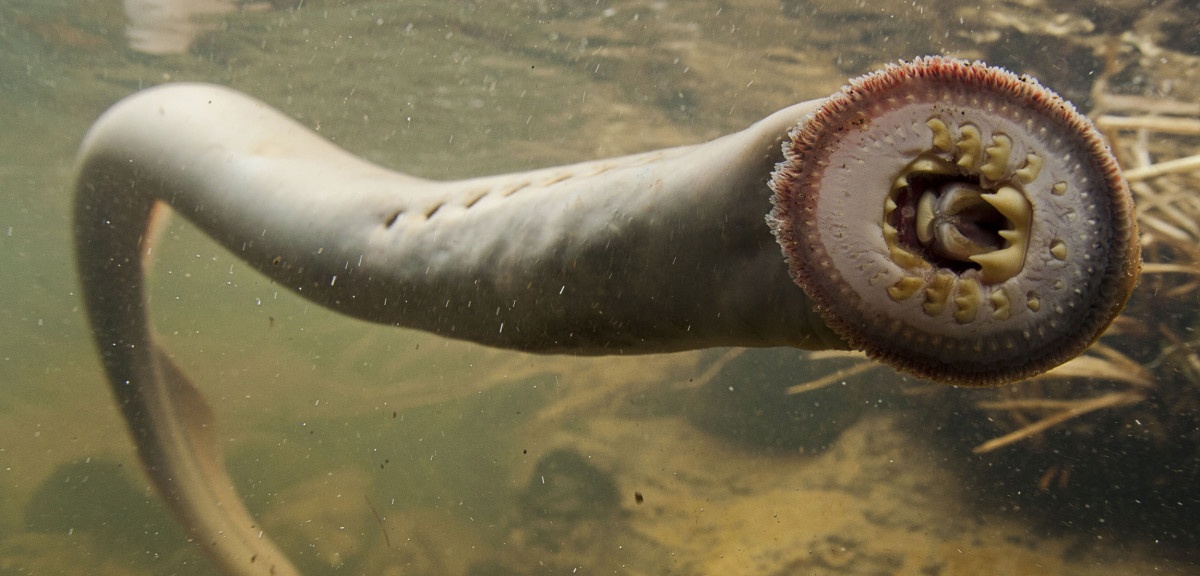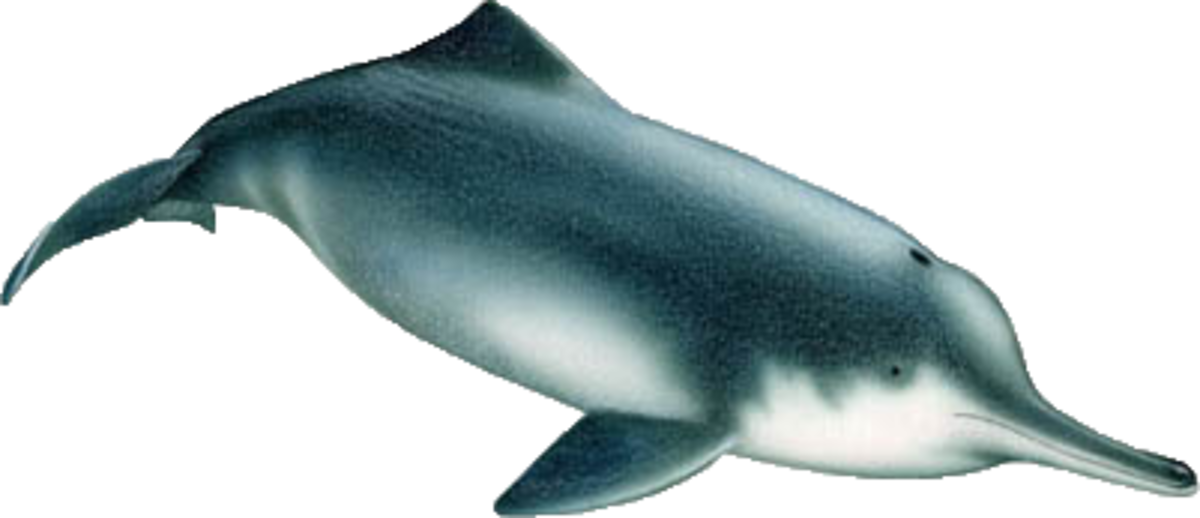Uplift: What is it and why would we do it?
What might we make of them?
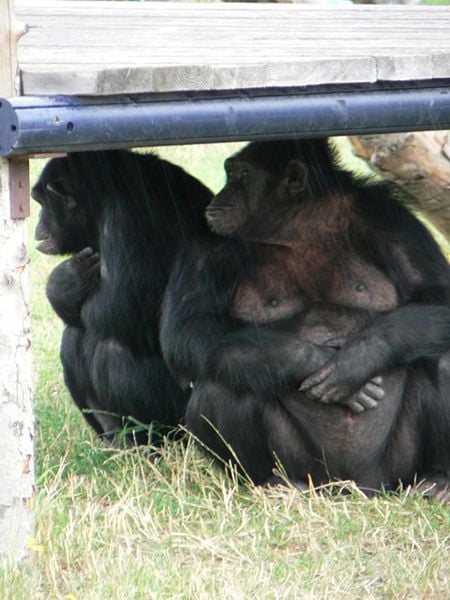
An idea that's actually been around a while
The term Uplift was first coined by author David Brin to describe the process of genetically manipulating another species to grant them human level intelligence. Although Brinn coined the term it is based on ideas that go at least as far back as the Island of Doctor Moreau. The idea of creating another intelligent species is intriguing. Considering how poor a job we do at sharing our world with other members of our own species though, one must wonder why anyone would do it?
The first proposed uplift?
Genesis of an idea
Books that started the term
Playing God?
The titular Doctor Moreau seemed to be motivated by nothing more nor less than a desire to play God. While this is a popular motivation for fictional a mad scientist, the real world funding and scientific expertise that would be required to make another species intelligent isn't conducive to such solo maverick scientists. If an animal species were ever actually uplifted it would likely be the product of the concerted effort of major corporate or governmental agencies. While those with power in both sorts of organizations may (sometimes justifiably) be accused of having a god complex, they can't generally martial the resources for such a program alone. Even someone with a god complex needs to justify his actions to those controlling the purse strings long enough to achieve their goals. They must also give persuasive arguments to underlings who experience uncertainty about their goals.
Transgenic animals now
Lab animals?
One thing that is likely to remain true as science progresses is that test subjects will be needed. No mater how advanced our ability to simulate the effects of experimental drugs or medial techniques they eventually need to be tested on a living being. Regardless of what animal rights activists might say, most people seem to prefer that at least some testing be done on animals, where possible, before it's done on humans. Of course animals are different from humans, research done on them is not always applicable to our species. To make animal testing work better scientists have created transgenic animals. These creatures have a human gene that scientists hope is the source of a problem they hope to cure. Drugs tested on transgenic animals will work on the animals more like they would on humans than they would if tested on non transgenic species. Scientists attempting to create drugs to treat Alzheimer’s or other diseases of the brain might be justified in wanting to test them on animals with a neurobiology closer to our own. An uplifted animal suffering from the condition you are developing a treatment for might almost seem ideal. Unless, of course, the uplifted test subject is intelligent enough to communicate any objections it might have to being a guinea pig.
Know thyself
Having other intelligent organic minds as a basis of comparison would help us understand ourselves better. To uplift a species we would have to adjust the genetic code for their brains in ways that wouldn't be acceptable on a human. This would require researching what genes regulate which aspects of our own intelligence. Work toward uplifting another species may be a necessary step toward medicine or genetic manipulation that could boost human intellectual capacity safely. Uplifting another species might be a first step toward improving our own.
We've bred animals for some strange things
Yes, the turnspit was a real dog breed
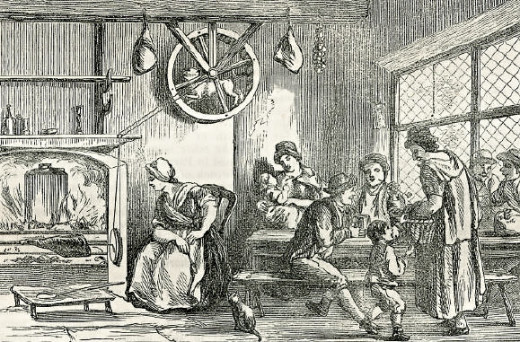
Bred for a job
Even if uplifted creatures aren't used for medical research there are tasks other than being a research subject humans would rather not do. We have, since the dawn of time, selectively bred animals for specific tasks. From horses bred to ride to dogs bred or turn a rotisserie it is not that great a leap to enhancing an animals intelligence to get it to perform unpleasant tasks that require intelligence but that humans would rather not do. Artificially intelligent machines might seem a preferable alternative to many but despite all the predictions about them electronic A.I. are not inevitable.
To understand the biological mechanisms behind the mind
Mention of thinking computers raises another reason an animal species might be uplifted. As it stands we have only one intelligent species to model an A.I. on. Increasing the intelligence of animals might give us clues about how our own intelligence works. Increased understanding of biological intelligence could in turn help us create electronic minds.
Environmental suitability
Space exploration might provide another reason to uplift another species. While we might find other worlds with life out there, odds are they won't be worlds that humans can just move into. What will be easier, modifying an alien environment to suit us or uplifting a native species and raising them in our culture? While the former will provide living space for the human race the latter will give us an ally occupying an alien world, possibly in less time and with less effort. Genetically altering humans to suit an alien environment is also an option but whether that will be easier than uplift will depend on what life is available for uplift and the alien-ness of the planet.
This would be easyer
- http://www.gizmag.com/roxxxy-us7000-sex-robot/14063/
Roxxxy is a US$7,000 sex robot that responds to touch, can conduct a conversation and deliver a unique erotic experience, say her manufacturers.
Anthropomorphic animals usually uplifted, not always about sex
Furries?
Of course, with the number of odd sexual fetishes that may be found online, it is probably no surprise that some writers see uplifts (usually under the furry banner) as a form of fetish as well. While sex is certainly big business, creating another intelligent species to cater to a limited fetish market seems to be doing things the hard way. Especially when mechanical companions could be cosmetically altered more easily, with considerably fewer physical needs. However, if an animal species is uplifted for any other reason, it does seem inevitable that members of the species will end up in the oldest profession. How societies sexual mores will adapt to having another intelligent species around makes for interesting speculation. Will our society grow so decadent that regarding our creations as sex slaves will be acceptable? Will we forbid sexual relationships between intelligent species even if friendship or romance might blossom?
Replacements?
Finally, fictional mad scientists have, from time to time, been portrayed as finding humans unfit to remain the dominant species on Earth. In such depictions they often tout their Moreau like creations as more worthy successors. These mad-men (and women) have the same problem that other mad scientists do, compounded by a desire to eradicate their creations competition. However, if the human race goes the post-human consciousness uploading route, will we want an organic successor to fill the ecological niche that our hunter gatherer ancestors once occupied?
Would we uplift animals to replace this?

What will we do with them?
At first glance the idea of uplifting another species might seem an ethically questionable pipe dream. On closer examination though there are reasons why we might do it. Though the morality of some of these reasons remains questionable, there are also valid reasons to make an attempt. The technical ability required is still fairly far off. On the other hand, cloning a mammal was thought to be far off in 1990. Perhaps more important than the question of why we might create another intelligent creature is how we will treat them once we have created them? Our track record with members of our own species is not encouraging. Hopefully we truly are more enlightened than our ancestors.





